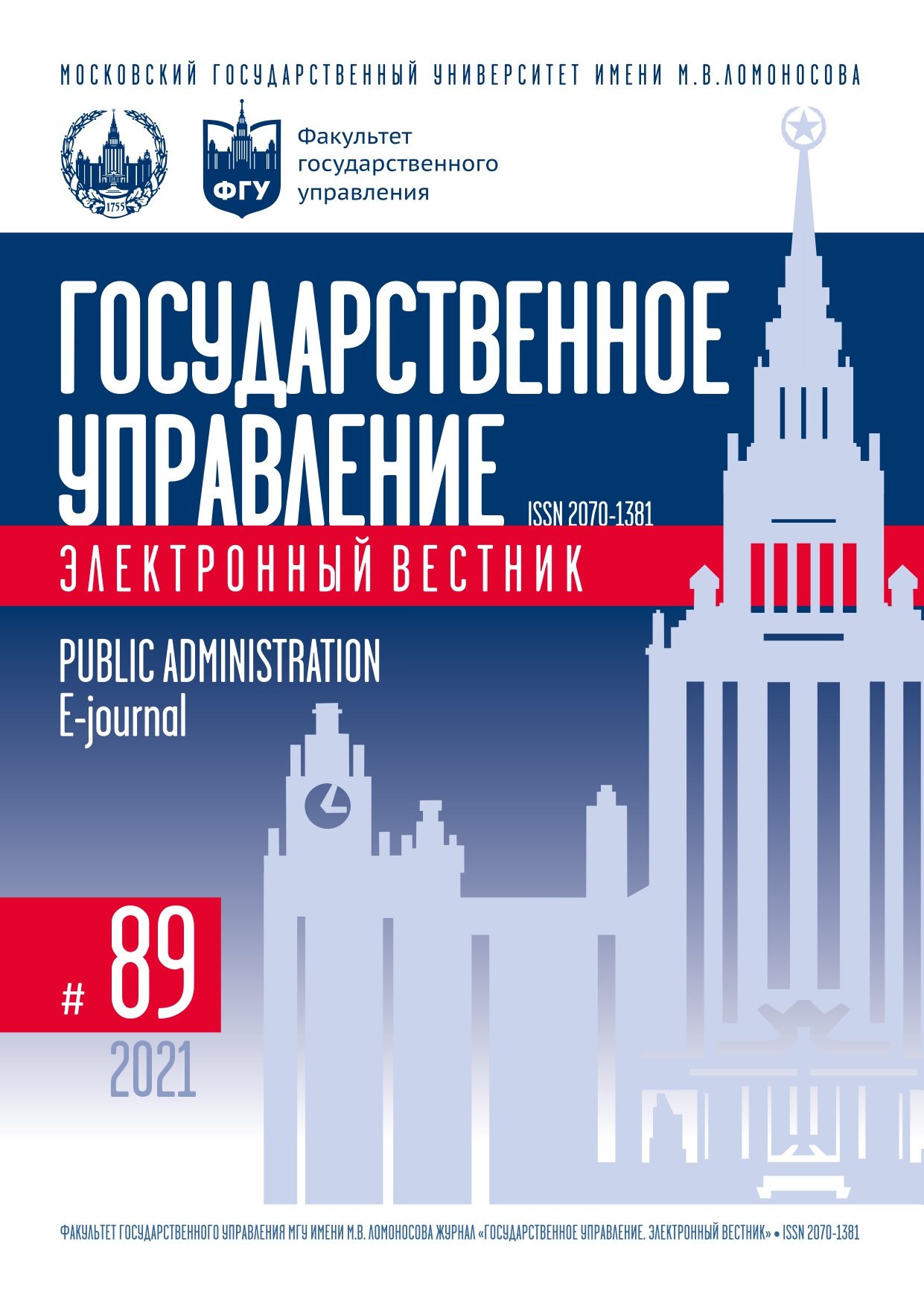Digitalization of Scientific and Educational Spheres: Management Aspects
Keywords:
Global challenges, digitalization, scientific activities, educational system, managerial strategiesAbstract
The Fourth digital revolution where digital economy has become the key factor of country’s development attracts attention to the role and form of scientific activities and education system. All aspects of social life and culture are being transformed drastically together with forming of digital society. Global digital civilization characterizes as a setting of a single and common information space that is composed of merged components such as TV and radio service, computer network and energetics. The boundary of physical and digital worlds is fading away caused by the implementation of virtual aspects in usual life. Thus, it is essential to find out new approaches to managerial strategies of scientific activities and educational system in the modern condition of global challenges. Moreover, artificial intelligence should be implemented in the educational technology and program in order to provide developing of human resource and to collect human assets. The conducted research defines the place and role of scientific activities in the modern Russian society as well as distinguishes main weak points, which have been limiting functions of scientific activities in higher education. The above knowledge allows elaborating new and relevant approaches to management of scientific activities in universities and applying their scientific products in the economy. One of the condition for efficient development of social and economy is development of scientific and educational spheres. The development of human opportunity and innovation activities of Russian science in general has a direct connection with the effective management of scientific subjects. Implementationof digital technologies in the economy and social sphere is associated with fulfilling some conditions, which are considered the research.
References
Зацаринный А.А. О роли научных исследований в рамках цифровой трансформации общества // Социальные новации и социальные науки. 2020. № 1 (1). С. 47–59. DOI: https://doi.org/10.31249/snsn/2020.01.0
Исаева Т.Е., Исаева Е.С. Прыжок «азиатских тигров»: роль высшего образования в национальном сознании группы стран Восточной Азии. Ростов н/Д: Изд-во РГУПС, 2019.
Лиотар Ж.Ф. Состояние постмодерна. Москва: Издательство «АЛЕТЕЙЯ», Санкт-Петербург, 1998.
Петрунин Ю.Ю. Искусственный интеллект: ключ к будущему? // Философские науки. 2018. № 4. С. 96–113. DOI: 10.30727/0235-1188-2018-4-96-113.
Пивоварова М.Б. Трансформация управленческих стратегий в научной сфере в высшей школе // Материалы Международного молодежного научного форума «ЛОМОНОСОВ-2021». М.: МАКС Пресс, 2021.
Поппер К.Р. Открытое общество и его враги. Т. 1: Чары Платона. М.: Феникс, Международный фонд «Культурная инициатива», 1992.
Рыбакова М.В., Зернова Л.П. Цифра и российское образование: управленческие аспекты // Власть. 2020. Т. 28. № 4. С. 171–178. DOI: https://doi.org/10.31171/vlast.v28i4.7454.
Степин В.С. Теоретическое знание. М.: Прогресс Традиция, 2000.
Тихонов А.В., Богданов В.С. От «умного регулирования» к «умному управлению»: социальная проблема цифровизации обратных связей // Социологические исследования. 2020. № 1. С. 74–81. DOI: https://doi.org/10.31857/S013216250008325-0.
Тоффлер Э. Третья волна. М.: ООО «Фирма «Издатетьство ACT», 2004.
Шваб К. Технологии Четвертой промышленной революции. Москва: Эксмо, 2021.
Barbazzeni B., Friebe М. Digital Scientist 2035 — An Outlook on Innovation and Education // Frontiers in Computer Science. 2021. DOI: https://doi.org/10.3389/fcomp.2021.710972.
Verhoefa C.P. Broekhuizena T.Y., Abhi B.B., Qi J.D., Fabiana N.M. Digital Transformation: A Multidisciplinary Reflection and Research Agenda // Journal of Business Research. 2021. Vol. 122. P. 889–901. DOI: 10.1016/j.jbusres.2019.09.022.
Downloads
Published
Similar Articles
- Guzel I. Gumerova, Elmira Sh. Shaimieva, Aсtivation of Educational Organizations’ Innovative Activity in Digital Economy , Public Administration. E-journal (Russia): No. 96 (2023)
- Vyacheslav V. Akhmadullin, The Arabic Language in the Politics of the Kingdom of Saudi Arabia , Public Administration. E-journal (Russia): No. 114 (2026)
- Sergey N. Grinyaev, Valery P. Zhuravel, State Governance under External Challenges: Lessons from the Great Patriotic War and Contemporary International Practices , Public Administration. E-journal (Russia): No. 113(S) (2025): Стратегии государственного управления в годы Великой Отечественной войны
- Сhen Hanzhi, Evgeniya V. Andryushina, The Main Directions of Internationalization Models’ Development of Russian and Chinese Universities , Public Administration. E-journal (Russia): No. 109 (2025)
- Ekaterina I. Shumskaya, Reproduction of Human Potential in Economic Development Strategies from a Cross-Country Perspective , Public Administration. E-journal (Russia): No. 111 (2025)
- Natalia P. Kononkova, Ani A. Kostanyan, Diana A. Mikhailenko, Vladimir A. Novikov, Elena Yu. Volkova, Vladislav I. Iliin-Minkevich, Role of State in Improving Internet Infrastructure in Universities to Support Combined Learning Formats , Public Administration. E-journal (Russia): No. 92 (2022)
- Alexander O. Naumov, Marina V. Belousova, Anastasia G. Ryzhkova, Role of Soft Power Technologies in Activities of UN Women , Public Administration. E-journal (Russia): No. 91 (2022)
- Elmira Sh. Shaimieva, Guzel I. Gumerova, Elvina R. Gareeva, A Lean Startup to Increase the Competitiveness of Russian Universities: Organizational and Managerial Aspects of Applied Results , Public Administration. E-journal (Russia): No. 111 (2025)
- Igor N. Molchanov, Natalia P. Molchanova, Reproduction of Human Potential in Changing Conditions of Higher Education , Public Administration. E-journal (Russia): No. 92 (2022)
- Guzel I. Gumerova, S. Hüsig, G. Schewe , Aleksandra J. Butneva, Elmira Sh. Shaimieva, Formation of Organizational and Managerial Approach Based on Management of Intellectual Property Objects in the Field of International Scientific Cooperation , Public Administration. E-journal (Russia): No. 91 (2022)
You may also start an advanced similarity search for this article.




